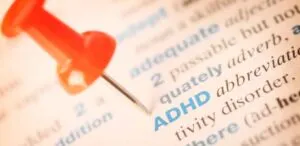Understanding Chronic Illness
Chronic illness refers to a long-term medical condition that persists over an extended period of time, usually more than three months. Chronic illness and depression can be caused by a variety of factors, such as genetics, environmental triggers, or even just plain bad luck. Examples of chronic illnesses include
- Systemic lupus erythematosus
- Rheumatoid arthritis
- Psoriasis
- Cancer
- Heart disease
- Diabetes
- Epilepsy
- HIV/AIDS
- Kidney disease
- Hypothyroidism
- Multiple sclerosis
- Parkinson’s disease
- Stroke
- Asthma
- Others
Chronic Illness and Depression
Living with a chronic illness is not easy. It’s common to feel sad and discouraged about your condition, worrying about treatment outcomes and the future. Temporary feelings of sadness are expected, but if you’ve been experiencing these emotions for more than a few weeks, you may be struggling with depression. Unfortunately, depression is a common complication of chronic illness, affecting up to one-third of people with serious medical conditions. Depression can affect your daily life, preventing you from enjoying time with family and friends and participating in work or leisure activities. It’s important to know that depression is a serious medical condition that can cause many symptoms in addition to affecting your mood. Common symptoms of depression include:

- Persistent feelings of sadness, emptiness, or hopelessness
- Loss of interest in once-enjoyed activities
- Significant changes in appetite or weight
- Changes in sleep patterns (insomnia or sleeping too much)
- Increased fatigue or energy loss
- Feelings of irritability, frustration, or restlessness
- Difficulty concentrating or making decisions
- Physical symptoms such as headaches, cramps, or stomach problems
- Thoughts of death or suicide, or suicide attempts
- Having trouble focusing or remembering things
- Staying out of social situations
Symptoms of depression are also common features of chronic medical conditions. This makes it hard to decide if these symptoms are due to depression or to the underlying illness.
Individuals who suffer from depression have an increased likelihood
It’s not uncommon for adults who are dealing with a medical condition to also suffer from depression. Conversely, people of all ages who experience depression are more likely to develop certain medical conditions. People with depression have a higher risk of developing cardiovascular disease, diabetes, stroke, osteoporosis, Alzheimer’s disease, and even chronic pain. It’s not entirely clear why this is the case. Still, it’s possible that inadequate medical care and poor self-care practices could be contributing factors. Taking care of your physical health can be challenging when you’re dealing with depression, but it’s essential to seek medical help, follow medication prescriptions, eat healthily, and get enough exercise. Don’t let depression control your life – take action to protect your well-being.
How can depression be treated?
Managing a chronic illness can often lead to depression, but it doesn’t have to be that way. Effective treatments for depression are available, even if you have another medical condition. If you or someone you know is experiencing depression, it’s important to let your healthcare provider know and explore treatment options. Make sure to tell your healthcare provider about all your current treatments and medications, including prescribed medications and dietary supplements, to avoid any potential interference between different medicines. This will also help your healthcare provider stay informed about your overall health and treatment concerns.
Psychotherapy: Talk therapy, specifically Cognitive Behavioral Therapy, can help with mild depression by identifying and replacing negative thoughts with positive ones.
Medication: A prescription medicine called antidepressants might be prescribed to help modify one’s brain chemistry which causes depression.

Brain stimulation treatment: People who suffer from severe depression may benefit from brain stimulation therapy. Transcranial magnetic stimulation (TMS), electroconvulsive treatment (ECT), and vagus nerve stimulation (VNS) are examples of brain stimulation therapies.
Self-help: People can take a variety of actions to assist in lessening the symptoms of depression. Regular exercise, a good diet, stable and quality sleep, and avoiding alcohol can all help lessen the symptoms of depression.
Alternative treatments: Complementary treatment can help those with minor depression or reoccurring symptoms of the condition. Massage, acupuncture, hypnosis, and biofeedback are all forms of therapy.
Tips for managing chronic illness and depression.
Living with a chronic illness and depression can be challenging, but here are some simple tips to help you cope and improve your quality of life:
- Getting help and support from a trained psychiatrist and therapist can be very beneficial to dealing with your condition.
- When overwhelmed, reach out to friends, family, or support groups for comfort. Talking to someone who understands can be helpful.
- Educate yourself about your chronic illness to make informed choices and feel empowered.
- A balanced diet and restful sleep can positively impact both your physical health and emotional state.
- Take time for yourself each day, even just a few minutes of relaxation or engaging in a hobby.
- Focus on what you can control and stay positive. Avoid anything that drains your energy or worsens negative emotions.
- To ease depression, practice mindfulness and relaxation techniques.
- Recognizing your resilience and progress is important, even if it’s just a small step forward.
Novus Beginning Psychiatry: Your Path to Health and Wellness Starts Here!
We understand that navigating the complexities of mental health can feel overwhelming, but you don’t have to face it alone. At Novus Beginning Psychiatry, we’re here to support you every step of the way. Whether you’re seeking therapy, medication, or a combination of both, our compassionate professionals are dedicated to helping you find the path to a happier, healthier life.
Our highly skilled psychiatrists are experienced in a wide range of mental health conditions, including anxiety, depression, bipolar disorder, OCD, PTSD, ADHD, autism, and more. We offer evidence-based therapies that have been proven effective in helping individuals overcome their challenges. From cognitive-behavioral therapy (CBT) to couples/family therapy, we utilize the most up-to-date techniques to empower you on your healing journey.
We also recognize that medication is vital in managing certain psychological health conditions. Our team includes Dr. Nibras, who is a board-certified psychiatrist well-versed in medication management. He works closely with you to develop a comprehensive treatment plan, as we believe in the power of personalized care.
So, take the first step towards a brighter future. Contact us today to schedule an appointment. Our friendly staff is ready to assist you in finding a convenient time to meet with our dedicated professionals. Call (832)856-4718 and let us help you take charge of your mental well-being.
Medication Management For Psychiatric Wellness
At Novus Beginning Psychiatry, we’re dedicated to helping you unlock the power of effective medication management. Our team of psychiatrists has years of experience and understands the importance of finding the right balance for your mental health journey. We offer personalized and compassionate care, creating medication plans that are tailored to your unique needs. Our understanding of psychopharmacology allows us to provide the most advanced and evidence-based treatments available.
Our goal is to help you by providing the right medications to enhance your therapy outcomes, reduce your symptoms, and improve your overall well-being. We want to be your trusted partner on the path to a brighter future. Please don’t hesitate to contact us at Novus Beginning Psychiatry to experience the transformative effects of our comprehensive medication management approach.
Who is Dr. Nibras?
Dr. Sohail Nibras is a double board-certified psychiatrist in child, adolescent, and adult psychiatry. He completed his education at Saint Louis University and the American University of Integrative Science. He excels in treatments based on psychiatric care and therapeutic sessions and has experience treating dual psychiatric and substance use disorders. He is an assistant professor at the Menninger Department of Psychiatry and Behavioral Sciences at Baylor College of Medicine in Houston, Texas. He serves as an attending psychiatrist at Texas Children’s Hospital. He trains future psychiatrists and engages in scholarly research projects.
Visit us
Come and visit us at one of our locations in person or meet us via telepsychiatry/online!
We’re here to help in Texas, ready to meet you in person. If you’re unable to make it in person, don’t worry, we’re also available online, so you can meet us easily from the comfort of your own home. Whether you prefer to see us face-to-face or connect with us online, we’re here to assist you every step of the way.
Address in Sugar Land
120 Eldridge Rd Suite D, Sugar Land, TX 77478
Address in Katy
23410 Grand Reserve Drive, Ste. 401 & 402 Katy, Texas 77494



